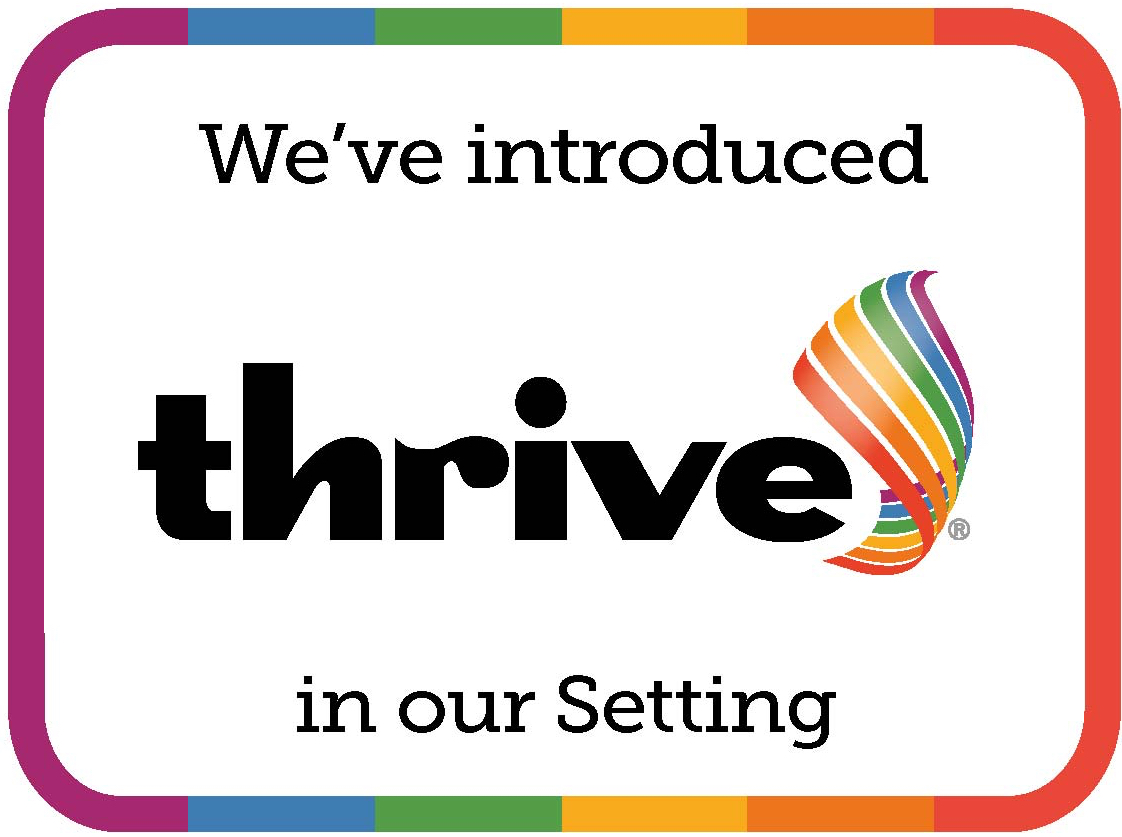Thrive


Across Tudor Grange Academy Trust, we are delighted to be embedding the Thrive Approach into our schools to support the emotional well-being of our pupils.
The Thrive Approach enables our staff to identify specific ways of working with pupils and helps them to respond to their differing needs, enabling them to contribute to developing a young person’s secure emotional base.
A secure emotional base is the necessary foundation for healthy development and enables access to learning so that children and young people can maximise their potential.
The Thrive Approach has four guiding principles:
- Every child or young person is a unique person, constantly developing and learning in different ways and at different rates, each with their own abilities, talents, and potential to be fulfilled
- Healthy development, emotional wellbeing and learning rely upon, and are promoted through, positive relationships
- People flourish when they are confident, self-assured, capable, and resilient
- Children and young people thrive in enabling environments where their individual development, learning experiences and needs are understood, responded to, and supported through strong partnerships with parents or carers.
The Thrive Approach is appropriate for all children and young people and enables adults to understand and meet children’s social and emotional needs at each stage of their development. Sometimes, because of challenges in the lives of children or their families, special educational needs or trauma, children and young people may be left with gaps or interruptions in their emotional development. The Thrive Approach enables adults to help to repair these gaps retrospectively, supporting optimal emotional health and wellbeing.
The Thrive Approach acknowledges that all behaviour is a form of communication. It highlights to us that behind every behaviour is a feeling and behind every feeling is a need. If a child or young person is behaving in a distressed, dysregulated, disruptive, or defensive manner, the adults around them recognise that this is their way of communicating that they have a need that is not being met.
As supportive adults in school, we focus on meeting the need of the child or young person rather than concentrating on the behaviour. This helps us to address the behaviour in a meaningful and sensitive way.
Who is our Thrive practitioner?

Miss Nevin
Thrive Practitioner

Kerry Maddocks
Thrive Practitioner
Our Thrive Practitioners have created a welcoming and safe space for pupils to go when they have their Thrive sessions. The environment is calming and focused on providing opportunities for the children to build relationships and learn about their social, emotional, and mental health with an emotionally present adult. All activities are interactive and engaging and tailored with the individual needs of each child in mind.
All staff at Tudor Grange Solihull Academy will have access to individually developed Thrive Pupil Profiles which enables them to understand a Thrive pupil’s individual developmental level within their class. Staff can focus on the appropriate stage of Thrive to meet the pupil’s developmental stage (which may not be neurotypical) by using the PACE approach:
P – Playfulness
A – Acceptance
C – Curiosity
E – Empathy
The Thrive Approach is appropriate for all children and young people and enables adults to understand and meet children’s social and emotional needs at each stage of their development. Sometimes, because of challenges in the lives of children or their families, special educational needs, or trauma, children and young people may be left with gaps or interruptions in their emotional development. The Thrive Approach enables adults to help to repair these gaps retrospectively, supporting optimal emotional health and wellbeing.
The Thrive Approach acknowledges that all behaviour is a form of communication. It highlights to us that behind every behaviour is a feeling and behind every feeling is a need. If a child or young person is behaving in a distressed, dysregulated, disruptive, or defensive manner, the adults around them recognise that this is their way of communicating that they have a need that is not being met.
Bi-annual Thrive Class Profiles are completed based upon their teachers’ knowledge of the pupils; sometimes this will be in collaboration with Learning Mentors, family, or any other relevant professionals. The profile enables the Teacher to identify the needs and next steps of social and emotional learning for pupils. The Class Action Plan created should help to form foci for pupils. Each class should complete a Thrive-focused activity each half term.
Any pupils who present with a greater need for support due to their behaviour, social or emotional needs will be individually assessed by our Thrive Practitioners to create an individual Thrive action plan and will then receive additional support, as necessary.
Our Thrive Room
